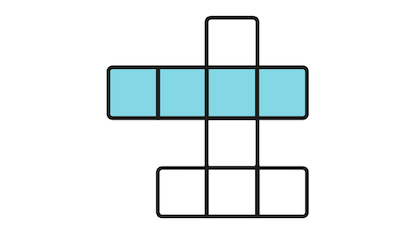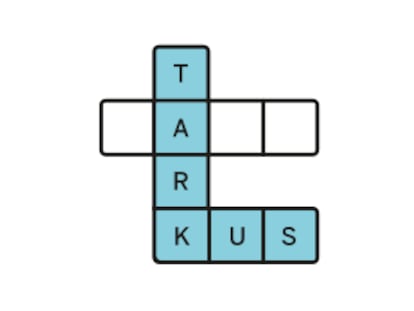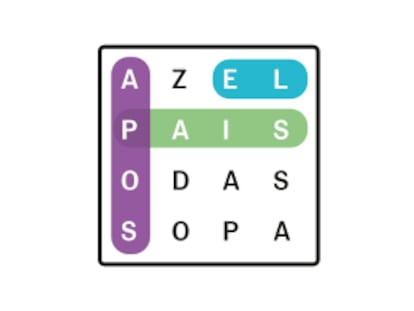La amenaza terrorista en el Magreb
Cable sobre la situación en África
En 2010, representantes de la OTAN, Francia y España se reúnen para evaluar la situación del continente
| ID: | 243160 |
| Date: | 2010-01-11 17:30:00 |
| Origin: | 10PARIS30 |
| Source: | Embassy Paris |
| Classification: | SECRET//NOFORN |
| Dunno: | 09PARIS1339 10NIAMEY11 |
| Destination: | VZCZCXRO5527 PP RUEHBZ RUEHDU RUEHMR RUEHPA RUEHRN RUEHTRO DE RUEHFR #0030/01 0111730 ZNY SSSSS ZZH P 111730Z JAN 10 ZDS FM AMEMBASSY PARIS TO RUEHC/SECSTATE WASHDC PRIORITY 8041 INFO RUEHZO/AFRICAN UNION COLLECTIVE PRIORITY RUEHBJ/AMEMBASSY BEIJING PRIORITY 2159 RUEHRB/AMEMBASSY RABAT PRIORITY 1240 RHEFDIA/DIA WASHINGTON DC PRIORITY RHMFISS/HQ USAFRICOM STUTTGART GE PRIORITY RHMFISS/HQ USCENTCOM MACDILL AFB FL PRIORITY RHMFISS/HQ USEUCOM VAIHINGEN GE PRIORITY RUEKJCS/SECDEF WASHINGTON DC PRIORITY RHEHNSC/WHITE HOUSE NSC WASHINGTON DC PRIORITY |
S E C R E T SECTION 01 OF 03 PARIS 000030 C O R R E C T E D C O P Y FOR ADDITION OF NOFORN (NF) CAPTION NOFORN SIPDIS DEPT FOR AF/W, AF/RSA, AF/EPS DEPT PLEASE PASS USAID E.O. 12958: DECL: 01/11/2020 TAGS: PTER, PREL, EAID, PGOV, PINR, MOPS, MA, NG, MR, NI, AG, CH, SG, FR SUBJECT: AFRICOM COMMANDER'S DISCUSSIONS WITH FRENCH OFFICIALS ON AQIM AND OTHER AFRICA SECURITY THREATS REF: A. 09 PARIS 1339 B. NIAMEY 11 PARIS 00000030 001.2 OF 003 Classified By: Andrew Young, Political Counselor, reason 1.4 (b and d). 1. (S/NF) SUMMARY: President Sarkozy's Diplomatic Advisor Jean-David Levitte, Sarkozy's Military Advisor, Admiral Edouard Guillaud, and others briefed U.S. AFRICOM Commander General William E. Ward on January 5 on security issues in Africa's Sahel region. The French pressed for additional coordination (military assistance, intelligence sharing, and development projects) in helping countries confront al-Qa'ida in the Islamic Maghreb (AQIM). In France's view, Mauritania could be the "spearhead" against AQIM, Niger positively "surprised" with its recent military engagement, but Mali remains "confrontation-averse." Other topics covered included France's African military bases, concerns about Senegal, the risk of a backlash against China, and hostage-taking trends. END SUMMARY. 2. (C) U.S. AFRICOM Commander General William E. Ward was invited to Paris for consultations January 5-6. He discussed the al-Qa'ida in the Islamic Maghreb (AQIM) threat in Africa's Sahel region with President Sarkozy's Diplomatic Advisor (NSC Jones equivalent) Jean-David Levitte, Sarkozy's Military Advisor, Admiral Edouard Guillaud, Guillaud's Deputy, COL Eric Bucquet, and Elysee Africa Advisor Remi Marechaux. Later in that meeting, and at a subsequent dinner hosted by Guillaud (Levitte did not attend) the group continued to discuss a broad range of African security issues. General Ward was joined by SOCAF's BG Haas and Polad Dr. Brown, DAO staff, and Embassy Paris Africa Watcher. On January 6, General Ward participated in media events and later held meetings with French intelligence and security officials (reported separate channels). THE AQIM THREAT -- WE NEED CLOSER COOPERATION --------------------------------------------- 3. (S) During the initial meeting, Guillaud, Levitte, and Marechaux provided France's assessment of AQIM's current activities and capabilities (focusing on Mali, Mauritania, and Niger), which was strikingly similar to the French assessment provided to AF A/S Carson and other USG officials on September 10, 2009 during the U.S.-France Sahel Security conference in Paris (Ref A). Notably, France views AQIM as a limited, but active and dangerous threat composing approximately 150 dedicated fighters. The group's intel and logistics capacity remains potent, as evidenced by recent kidnapping of western hostages, which were quickly moved to AQIM comfort zones in Northern Mali ("crossing two thousand kilometers of desert in a couple of days8). 4. (S/NF) Guillaud asserted that AQIM represents France's greatest security concern, and it is vital that the group gains neither legitimacy nor broader operational space. Chad, Northern Nigeria, Burkina Faso, Senegal, Libya, and even Tunisia are at risk of AQIM influence if Mali, in particular, does not contain it -- with U.S. and French assistance. He assessed Mauritania as the most effective of the three countries in confronting AQIM and should be viewed as the "spearhead." At the same time, Guillaud was "happily surprised" by the aggressive tactics used recently by Niger's army,s successful fight with AQIM elements in Niger. (Note: Marechaux later shared with AF-Watcher a classified report clarifying that Guillaud was referring to the late December incident also reported in Ref B. End note.) Noting current USG policy restrictions vis-a-vis Niger, Guillaud recommended the U.S. soften its stance on military cooperation since in the mid- to long-term it would be counterproductive for security reasons especially as Niger is inclined to fight AQIM. In his view, Mali's President Toure remains "confrontation-averse." 5. (S/NF) Guillaud and Levitte expressed appreciation for the improving coordination between the U.S. and France in supporting host country CT efforts, but noted that there remained room for improvement. They stated that President Sarkozy has personally requested French agencies to reach out to U.S. counterparts. France wants better coordination -- PARIS 00000030 002.2 OF 003 not competition -- with the U.S. in a cohesive manner that includes discussions of military cooperation, enhanced intelligence sharing, and complimentary development assistance. Uniquely in the Sahel region, Guillaud claimed that he and his staff coordinated all three activities on behalf of the GOF. Even projects funded by France's development agency (AFD) in the region are approved by Guillaud's office. Levitte added that a more open U.S.-France approach is necessary to discourage host countries from attempting to "play us off each other." He emphasized that U.S.-French cooperation should be discreet and that there is no need to tell the other countries in the region our level of cooperation )- we should stay below the radar. (Note: Guillaud is expected to depart his current post in approximately one month to become France's new Chief of the Joint Staff. End note.) 6. (S/NF) At the same time, there was broad agreement that our efforts against AQIM must be centered on adding capacity to the host countries' ability (and political will) for confronting and defeating AQIM. General Ward added that France and the U.S. should maintain a low profile and not create the impression of a western presence that could turn the region into a new jihadist call to arms. 7. (S/NF) There was agreement that confronting the AQIM threat must also have Algeria's participation, but that requires a different approach than is envisioned for the three sub-Saharan countries. AFRICAN SECURITY TOUR D'HORIZON ------------------------------- 8. (S/NF) Regarding France's military bases in Africa, Guillaud confirmed that Sarkozy remains committed to closing one of its west coast bases, in either Senegal or Gabon. However, despite a base's closure, it is likely that some residual French force would remain in that country. Combined, the two bases currently host approximately 2,200 personnel, but in the future one will likely be staffed at around 1,000 and the other around 200. Guillaud assessed the negotiations with Senegal are progressing poorly due to "the greed of Wade and his family" whose only interest is recovering the land in order to sell it for personal profit. The Senegalese president, Guillaud said, is not considering the country's national interest or regional security concerns. France is currently renegotiating its military agreement with Djibouti and Guillaud asked if the U.S. could share details of its payments agreement with Djibouti because he fears the sum is being inflated by President Guelleh in order to extract higher rates from France. Guillaud claimed that the French base, including rents and local economic activity, account for 30 percent of Djibouti's GDP. 9. (S/NF) Guillaud, Levitte, and Marechaux were all pessimistic about Senegal and the Wade administration's poor governance, both socially/economically, and also for Senegal's lack of seriousness on security matters. Guillaud recounted, with exasperation, the history of AQIM operatives that after killing a French tourist in Mauritania, traveled through Dakar and were eventually caught in Guinea Bissau. (Note: Guillaud was apparently referring to the case of Sidi Ould Sidna and Mohamed Ould Chebarnoux who, according to other reporting, were wanted for involvement in the 24 December 24, 2007 murder of four French tourists near Aleg, Mauritania and were subsequently arrested on January 11, 2008 at a hotel in Bissau. End note.) Guillaud went farther than we have heard from GOF officials when he added that "personally" he fears Senegal could become a failed state. Levitte agreed. 10. (S/NF) During a brief discussion on the DRC, Guillaud shared his fears of a major backlash against China, claiming that he was told in Kinshasa that (apparently government-supported) groups have already drawn up plans to "rid" the country of Chinese immigrants should tensions be sparked by some future event. He clarified that he was referring to "pogroms and machetes." Guillaud also shared an anecdote from the ROC in which President Sassou-Nguesso wanted a dam built but was rebuffed by western donors. China PARIS 00000030 003.2 OF 003 agreed and the project was contracted to a Chinese firm via a low-interest loan from Beijing for around USD 450 million. Subsequently, the IMF assessed the actual cost of the project to be only USD 150 million. 11. (S/NF) Guillaud asserted that hostage-taking, both in the Sahel and via piracy was increasingly dangerous, and expensive. He claimed that Spain, in particular, has a track record of paying exorbitant sums in ransom and now the demands of the kidnappers are massively inflated -- though Guillaud adamantly denied that the French government paid ransom. He asked that the U.S. join in approaching other countries to put a stop to these payments. Risky travel by French citizens who ignore MFA travel warnings and then require GOF assistance also raised Guillaud's ire. He stated that the two journalists recently kidnapped in Afghanistan were specifically warned not to pursue their travel plans and now, to date, France has spent more than Euro 1.5 million in intel resources to try to aid them, resources that have been diverted from "more important" situations. Guillard was concerned about tourism in the Sahel. During the dinner he received an "encrypted" text message on his phone, which he described as confirmation of previous information that more than 600 Western tourists are already confirmed to attend Northern Mali's "Festival au Desert." Guillaud claimed that more than half of those tourists are American. COMMENT ------- 12. (C) The visit was a very open and cordial one. It clearly reflected a harmonized point of view on cooperating and collaborating in our efforts to help defeat terrorism in the Sahel. The importance of transparency in our on the ground activities was emphasized as was the importance of sharing information and intelligence. 13. (U) AFRICOM Commander has cleared this message. 14. (U) Conakry and Tripoli minimize considered. PEKALA |
Traduce este documento »
Traducción automática. Puede que el texto traducido no sea fiel al original
Únete a EL PAÍS para seguir toda la actualidad y leer sin límites.
Suscríbete_







































































